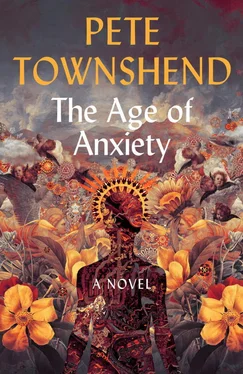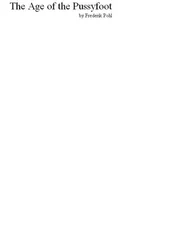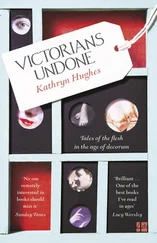We were all gathered at the side of the stage. The concert was the first time in nearly sixteen years we had seen Walter perform.
An orchestra and a choir were onstage with the band, and behind them a huge pipe organ. Harry Watts was variously playing it or conducting the musicians who were interpreting his orchestrations of Walter’s soundscapes. The lyrics, what Walter called “the libretto,” had beautiful moments. Some of the poetry was excellent, I thought. I still had no idea who Harry had commissioned to write it, and in the program the credit was short: soundscapes conceived by W. K. Watts, music composed by H. Watts, libretto by S. Watts. Was it Walter’s mother Sally who had contributed the words? Was it possible she was as clever a poet as she was a painter?
As the orchestral music rang out, filling the park with ambitious and audacious modern orchestral music and organ cascades, Frank Lovelace looked extremely worried; the audience was not responding as he had hoped and as Steve Hanson had promised.
Patty Hanson waved her tambourine and floated around in her flowing silk dress.
Crow looked tough and detached, but I thought I detected a hopeful gleam in his eye. Of course he knew that if somehow he could get Walter to do his famous “stand” and play his harmonica, like in the old days, all would be well.
Walter stood center stage, singing, howling, and—when his father was at the organ—conducting. The musicians Harry had brought played along with Crow, Steve, and Patty Hanson, and it was really only Walter who seemed to have little to do onstage. But he looked proud, and moved, and occasionally when his voice was required he used it in an entirely new way. Instead of singing in his old style, he used his voice like a musical instrument, and when there were lyrics, they were more like poetry than the songs he had written for the Stand back in Dingwalls.
In the past Selena had sometimes described to me the almost invisible ghosts of the hundreds of entities that she saw in visions, and that day, as the soundscapes seemed to open up dimension after dimension, I wondered if I too was seeing them, small shadowy puffs flitting across the sky like smoke, “searching for souls they might occupy,” as Selena might say. The clouds morphed and evolved and I thought I saw a dozen faces that could have been God up there. And what could that be? I asked myself, stretching across the sunset in shades of gold and gray. Could it be Nik’s assembled angels waiting for the Harvest? Was I going back to the days of my old madness, or was I at last experiencing what I had always hoped for in Walter’s soundscapes?
After ninety-five minutes the dark and forbidding music ended. As the last soundscape rang out over the park, Selena was clinging to me tightly, almost violently.
As the sun finally dipped below the fairground in the distance, it felt like an uneven and awkward end, partly because there was a sense hanging in the air that the sound might return at any second.
Nothing had been normal about the performance. There had been music, but also a lot of what many in the crowd no doubt took to be simply noise: disorganized, irritating noise. So when the last song finished, there was an expectant silence.
The silence at the side of the stage, mirroring that of the thirty thousand on the green, was broken when Maud asked, “Is anyone going to clap?” Floss turned to her and smiled, but she shook her head. At that, a few sporadic handclaps did break out, and a few isolated cheers.
There was a gentle rustling. Breathing. I could hear an occasional cough, the clearing of throats, a sneeze. A distant airplane rumbled in the sky. No words.
I asked myself if it was possible that the soundscapes had released, confronted, and redeemed some of the anxieties they reflected, as Walter and I had talked about? Looking at the crowd, at some of the smiling and hopeful faces looking up at the stage, I felt that perhaps something wonderful and significant had happened. Had any of them seen anything like the visions I had seen?
Many in the audience would no doubt have come to hear rock music. But maybe they had been reminded in some way that the music they loved most would always spring ultimately from them, and from what they deeply felt and needed, not just from their musical heroes. Just as Selena described herself as the almost helpless “principal engineer” of all her schemes and machinations, so perhaps the audience were the real engineers of the music they had heard that evening? Although they may have been unconscious that they had elected Walter to the stage that night, they had done so, and he had spoken to them as a true artist—heart-to-heart.
Could any of this be true? I asked myself again. Or were these thoughts just more symptoms of my madness? Naturally, I told myself, some of the audience would not have been touched at all. That was always the way. That is not to sneer at them or imply they were unresponsive or deaf and blind in some way. They may simply have been confused or intimidated, left feeling let down by being cheated of an evening of old-time R&B, but also maybe sad they felt unable to rise to what had been offered.
I looked out into the crowd again. A sense of expectancy remained, but also perhaps acceptance that there would be no more. No more music. Walter was not going to blow a note on his harmonica and break the silence. He was not going to do his famous “stand.” There would be no maudlin closing song. There would be no chorus in the sky.
There would be no “Amen.”
Applause would not break out.
Selena spoke. “The soundscapes were mind-fucking.”
I nodded. She was right. There was no question that Harry’s compositions broke new ground and had certainly created a deep atmosphere.
There had been such beautiful moments in the orchestral sections, but also very disturbing parts. This was music that reflected an entire range of human emotion and fragility.
Selena held me ever more tightly. Her touch terrified me. She had me in the palm of her hand. She could break me. She could tell Floss—indeed everyone—what she knew, that I had raped her best friend. My control over my life for the past eighteen years, the dignity I felt in my recovery, my sobriety, and freedom from drugs all began to crumble. If she talked, I would be finished. My life would be over.
At that moment I felt her left hand move from my arse to my thigh, and then slip around to my cock. She looked up at me, grinning lasciviously, a sly part of me responding, thinking things could be worse.
She waved at her sister who was standing on the opposite side of the stage. I saw that Siobhan was smiling, tears of joy streaming down her face. Selena put her index finger on the program and whispered to me.
“Siobhan Watts,” she said. “‘S. Watts.’” It was she who had written the poetic lyrics.
Walter was still standing in the center of the stage and only a few of the crowd were turning away to leave. There was a kind of buzz in the air, and the lighting monkeys (the operators of the big spotlights up in the gantry) were sweeping the sky.
Selena was in shadow when she looked up at me and said, “You saw the angels, didn’t you?”
I just nodded. I was thinking, Are we united in madness? And with hope flooding in: Does this mean she won’t betray me?
The crowd was now finally beginning to turn away from the stage and leave. But as they did Walter came to his senses.
“Don’t go!” He was shouting. “Not yet!”
People turned back to the stage.
“Don’t go,” Walter shouted again. “I have something I need to say. Something I want to ask you all.”
There was a slight pause and the audience refocused on the stage.
“Is there, in the audience, by any chance, a girl born in Bern in Switzerland in the spring of 1995 who was adopted and doesn’t know her biological parents?”
Читать дальше












